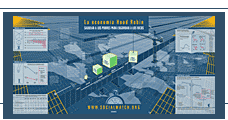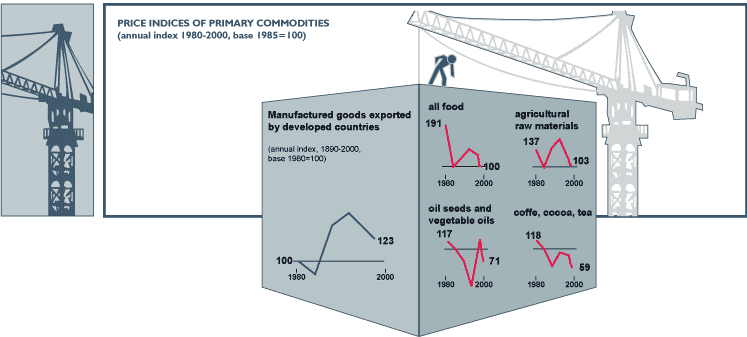|
|
|
|
| | ESPAÑOL | Commitments | Annual Report | News | About | Feedback |
 |
 |
 |
|||||||
| |
|
|
|
|
|
|
|
|
|

|
Farmers in developing countries captured only 35% of world agricultural exports in 2001 - down from 40% in 1961, as a result of falling commodity prices and high trade barriers. The subsidy per cow in the European Union is $2.20 a day. Half the world's population lives on less than $2 a day. Three billion people, in other words, would be better off bovine. Without considering inflation, non-fuel commodities exported by Africa in 2001 were at one half of the value for 1980. |
Many tariffs in the North on agricultural exports of the South are prohibitively high (200% to 300%). Domestic subsidies in rich countries rose from $275 billion in 1987 to $326 billion in 1999. Instead of reducing them, as promised, the US increased subsidies under the Farm Bill, and the European Union leaders decided to continue them for at least 12 more years. Protectionism by the rich prevents the poor from fully exploiting their competitive advantages. In low-technology industries alone, developing countries are missing out on an additional $700 billion in annual export earnings as a result of trade barriers. This represents at least four times the private foreign capital inflows. |